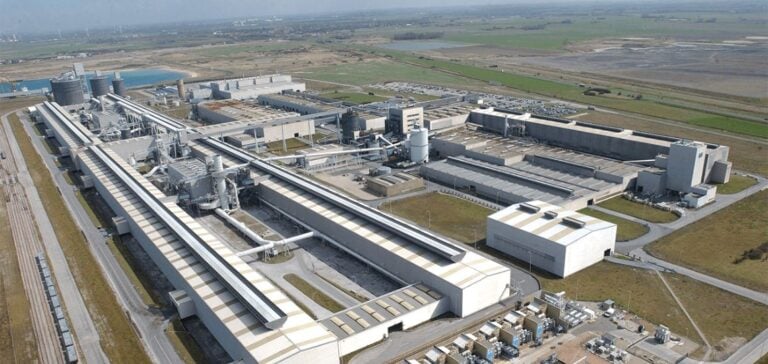The imminent end of the Regulated Access to Historic Nuclear Electricity (Arenh) on December 31, 2025, raises significant concerns for French industries. Among them, Aluminium Dunkerque, the largest electricity consumer in France, has expressed its urgent need for price guarantees to remain competitive in the global market.
A strategic challenge for the industry
The Arenh mechanism allowed major electricity consumers to benefit from a preferential tariff of 42 euros per megawatt-hour (MWh). This system, considered vital by industrial players, will be replaced by long-term contracts offered by EDF, based on a national average tariff of 70 euros per MWh, according to the agreement signed between the state and EDF in November 2023.
“We need long-term visibility and competitive prices to remain efficient in a global market where aluminum prices are set by the London Metal Exchange,” said Guillaume de Goÿs, CEO of Aluminium Dunkerque. Electricity represents the second largest cost for the plant, after alumina.
Contracts that fall short
In this context, Aluminium Dunkerque has signed a temporary contract with Engie to cover part of its energy supply between 2026 and 2029. However, this solution does not address long-term challenges. French industrialists criticize the 70 euros/MWh tariff as too high compared to other regions of the world.
“Our competitors, notably in the Middle East and Norway, benefit from much lower electricity costs,” Guillaume de Goÿs pointed out. In the Middle East, tariffs sometimes drop below 20 dollars/MWh due to gas-based production, while in Norway, market prices are 20 to 30 euros lower than in France.
A challenge for the energy transition
Beyond competitiveness, energy costs play a central role in the ability of industrialists to invest in decarbonization. “We need pricing conditions that allow us to carry out our decarbonization projects while remaining competitive,” said Guillaume de Goÿs.
While the aluminum market continues to grow, driven by demand in the energy transition and vehicle lightening sectors, France will need to adjust its energy policy to avoid hindering the development of these strategic industries. Without significant adjustments, the risks of relocation and deindustrialization could have a significant impact on the national economy.






















